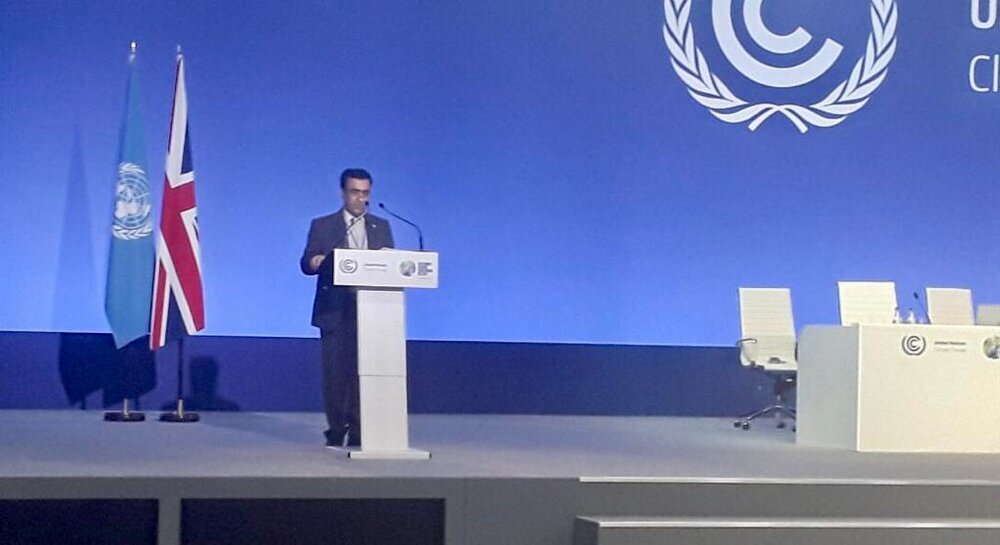11 Dec 2024

Tired Earth
By The Editorial Board

“Iran’s approaches toward the environment are rooted in religious and traditional teachings. Iranians are especially interested in preserving the environment,” IRNA quoted Salajegheh as saying on the sidelines of the 26th UN Climate Change Conference which is underway in Glasgow, Scottland.
Iran is proud of one of the most brilliant track records in dealing with desertification and renewable energies are very important for us, he emphasized.
“We are obliged to reduce greenhouse gas emission by four percent only if all sanctions against the country are lifted.”
As the second-largest country of the Eastern Mediterranean Region, Iran is highly vulnerable to the effects of climate change as it is geographically located in an arid and semi-arid region having faced temperature increases, a decline in precipitation, drought, desertification, soil erosion, and loss of biodiversity over the recent years.
Iran is partaking in the Conference of Parties of United Nations Framework Convention on Climate Change (COP26) by presenting 3 nationally determined contribution reports to the United Nations Framework Convention on Climate change (UNFCCC), to which the country is a signatory, and preparing a country profile on climate and health through its Ministry of Health and published jointly by World Health Organization and UNFCCC.
Elham Azizi, head of climate change group of the Department of Environment, said on November 3 that Iran has a plan to reduce greenhouse gas emissions according to the low-carbon economy program, and if sanctions are lifted and funding is provided, there will be no obstacle to the realization of these programs.
“Our country is one of the most vulnerable countries in terms of climate change. Iran receives one-third of the average global rainfall annually, but water evaporation is three times that of other countries, so the intensification of climate change can reduce the diversity of agricultural products, migration, depletion of water resources, and sand and dust storms.”
Global Environment Facility
Unfair and unilateral sanctions imposed by the United States have hindered the Global Environment Facility (GEF) to finance environmental projects in Iran.
The GEF was established in 1992 aiming to help tackle the most pressing environmental problems around the world.
Iran got the GEF membership in 1994. Ms. Narges Saffar, head of the international affairs unit of the Department of Environment represents the country. Currently, the GEF has 183 participants.
The Council, the GEF's main governing body, comprises 32 Members appointed by constituencies of GEF member countries (14 from developed countries, 16 from developing countries, and 2 from economies in transition). Council Members rotate every three years or until the constituency appoints a new Member. The Council, which meets twice annually, develops, adopts, and evaluates the operational policies and programs for GEF-financed activities. It also reviews and approves the work program (projects submitted for approval), making decisions by consensus.
In a statement to the Seventh Asia-Pacific Forum on Sustainable Development (APFSD7) which was held online in May 2020, Ms. Saffar said that the U.S. sanctions have acted as a barrier to achieving sustainable development goals. She noted that global solidarity is needed in moving towards sustainable development regardless of the abuse of political power to put pressure on others.
Iran has to grapple with its highly complex environmental issues such as severe land degradation, water scarcity, biodiversity loss, waste man Sustainable Development Strategies (SDSs), and climate change, she lamented. Besides, ceaseless conflicts in West Asia which eventuate insecurity and impurified decision-making exacerbate the impacts of the common environmental challenges we encounter especially SDSs, transboundary river and water management, and new pest attacks across the borders which threats our biosecurity, she added.
MG
Source : tehrantimes.com
Comment